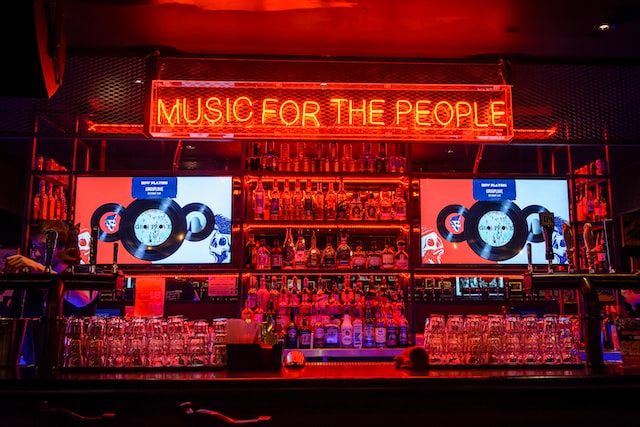Music Licensing Fees are Unavoidable for Bar Owners

You first opened your brewery taproom, winery tasting room, or craft distillery bar several weeks ago, and everything is going well. A good crowd is enjoying your products and the environment, enhanced by a perfectly curated playlist of just the right chill pop hits. That’s when you open a letter from a company called BMI, ASCAP or SESAC. This letter inexplicably claims that, by streaming those chill hits from your favorite streaming service, are you breaking federal copyright laws. The letter demands that you sign a music licensing agreement which will require you to pay a significant licensing fee. Your first thoughts are: Is this for real? Unfortunately, it is for real and you must deal with it.
An Unwelcome Letter
If you own a brewery, winery, or craft distillery, you might have recently received a letter from a company called BMI, ASCAP, or SESAC. The letter might say that you’re breaking federal copyright laws by playing music in your establishment. They might ask you to pay a licensing fee to use the music.
It might be confusing and you might be wondering if it’s real or not. But it is real. By law, you have to pay royalties for all the music played in your public establishment, whether it’s live or recorded. The only exception is if you’re only playing music on the radio or TV.
PROs: The Music Gatekeepers
BMI, ASCAP, and SESAC are big companies that collect royalties for music artists and recording companies. They’re called Performing Rights Organizations (PROs) and they manage the rights for most of the artists behind the music you’re playing. If you’re playing music from their catalog, you have to pay royalties, even if you’re playing streaming music. Not paying can result in high legal penalties.
How do PROs know that your establishment plays the music that they represent? They have spies.
It’s a better idea to pay for a music license instead of avoiding it. Not paying can be more expensive in the long run since penalties for using music without permission can be high. Each song used without permission can result in damages between $750 to $30,000 or more if it’s found to be intentional.
Another thing to keep in mind is that each PRO has their own catalog of represented music and there’s little overlap between them. Unless you’re careful to only play songs represented by one or two PROs, you might end up having to pay all three.
Go Along to Get Along
If you want to keep playing music in your establishment, you have a few options:
- Sign the licensing agreements from BMI, ASCAP, and SESAC and start paying their fees.
- Use a music-for-business provider like Pandora, Sirius XM, or Soundtrack Your Brand (partly owned by Spotify), who take care of the royalties for your background music.
- Play music from a single radio station on a single radio with up to 6 speakers.
If you’re going to have live music performances in your establishment, make sure to have a live performance agreement that deals with the licensed music issue. The agreement should make it the performers’ responsibility to have a license for all the music they’re playing.
Do you questions about music licensing for your establishment? Contact us to schedule a consultation with a beverage attorney.
Because we’re attorneys: Disclaimer. Posted January 22, 2023.

